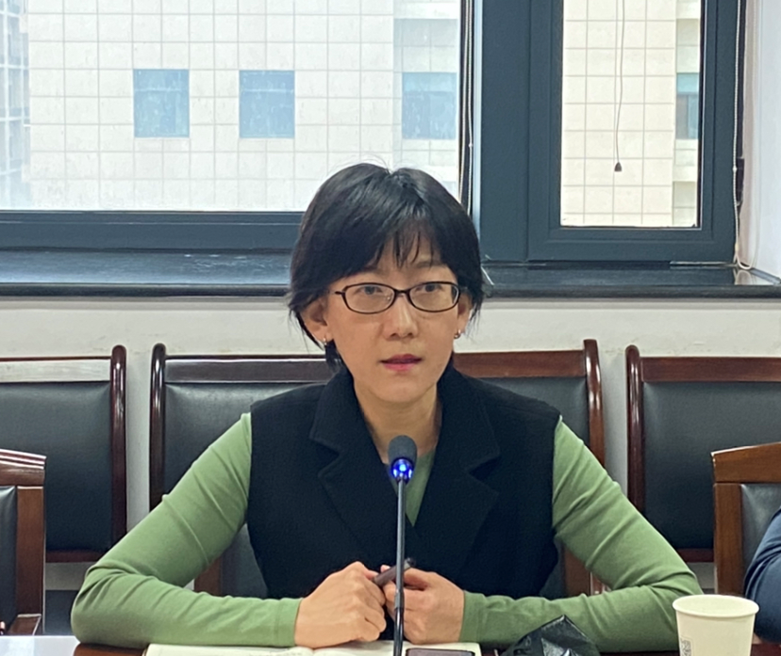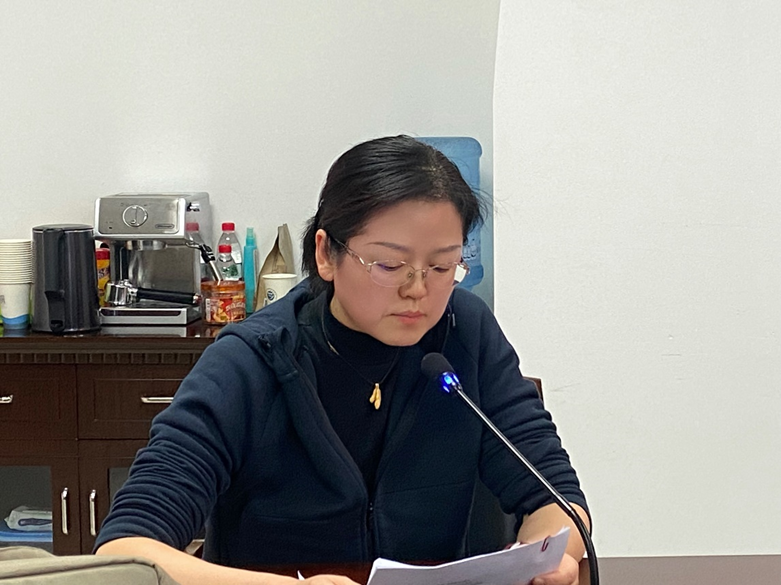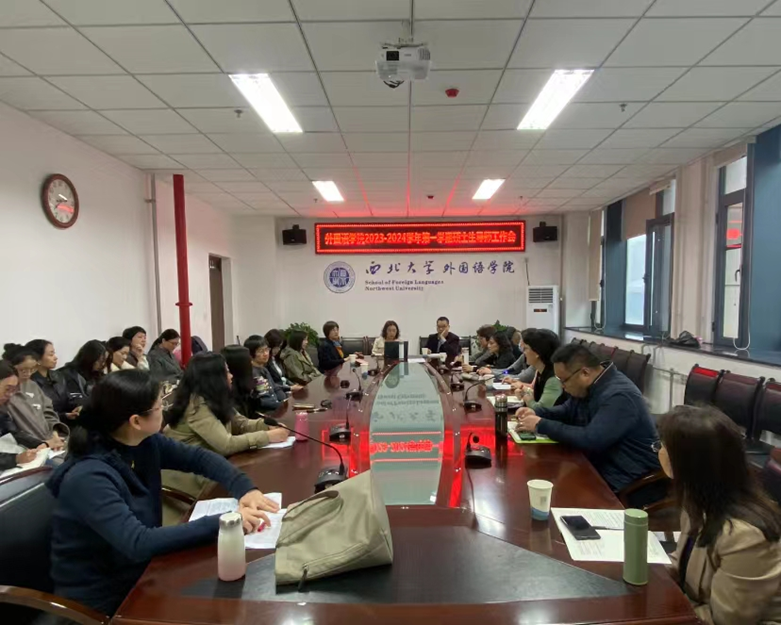To further strengthen the construction of the graduate supervisor team, fully implement the fundamental task of moral education for graduate supervisors, standardize the guidance behavior of supervisors, enhance their guidance capabilities, and improve the quality of graduate education in our school, a new semester meeting for graduate supervisors was held on the afternoon of October 18th in the fifth-floor conference room of the West Building, chaired by Dean Cao Ruonan.

Dean Cao Ruonan presided over the meeting
Firstly, Cao Ruonan started by using examples of professional master's practical cases to propose initiatives on how to enhance the overall research capacity and level of our school, thereby assisting in the new development of foreign language disciplines. She encouraged supervisors to integrate their research interests with national development needs, leverage our school's advantageous disciplinary resources, focus on area studies, further tap into research potential, and create new research growth points. Secondly, she reported on the decisions of the College Degree Evaluation Sub-Committee from aspects such as standardizing the application materials for postgraduate degrees, improving degree standards, and innovating postgraduate supervision methods. She emphasized that mentors, as the primary persons responsible for graduate education, should encourage and guide students to actively and effectively participate in research projects and high-level professional competitions, and provide precise assistance in line with employment needs. Finally, based on the employment situation of the students enrolled in 2020, she pointed out that supervisors should grasp students' employment trends and intentions, attach importance to the linkage and coordination between education and employment, and promote high-quality employment by broadening internship and practical channels.

President Cao Ruonan presided over the meeting
First, Cao Ruonan took the submission of professional master's practical cases as the starting point to propose initiatives on how to enhance the overall research capacity and level of our school, and to support the new development of foreign language disciplines. She encouraged supervisors to integrate their own research interests with the needs of national development, rely on the advantages of our school's disciplinary resources, focus on area studies, further tap into research potential, and create new growth points in research. Secondly, she reported on the resolutions of the school’s degree evaluation subcommittee from aspects such as standardizing the application materials for graduate degrees, improved degree standards, and innovated graduate supervision methods. She emphasized that as the primary person responsible for graduate education, supervisors should encourage and guide students to actively participate in research projects and high-level professional competitions, and provide precise assistance aligned with employment demands. Finally, she pointed out, based on the employment situation of the students enrolled in 2020, that supervisors should understand students' employment trends and aspirations, attach importance to the coordinated linkage between education and employment, and promote high-quality employment by expanding internship and practical channels.
During the interactive session, Director He Hua of the MTI Center shared her experience in submitting professional degree teaching cases with attending mentors. She explained the process and key points of the submission, and emphasized the importance to rely on teaching practice, highlight the characteristics of professional practice, leverage the disciplinary advantages of our school, address contemporary real-world issues, and ensure practical application and widespread value.

Professor He Hua, Director of the MTI Center spoke

All master's supervisors attended the meeting
The convening of this supervisor workshop is of great significance for improving the quality of graduate education and strengthening the construction of a high-quality supervisor team. It will continue to promote the graduate education management work of the school to a new level.